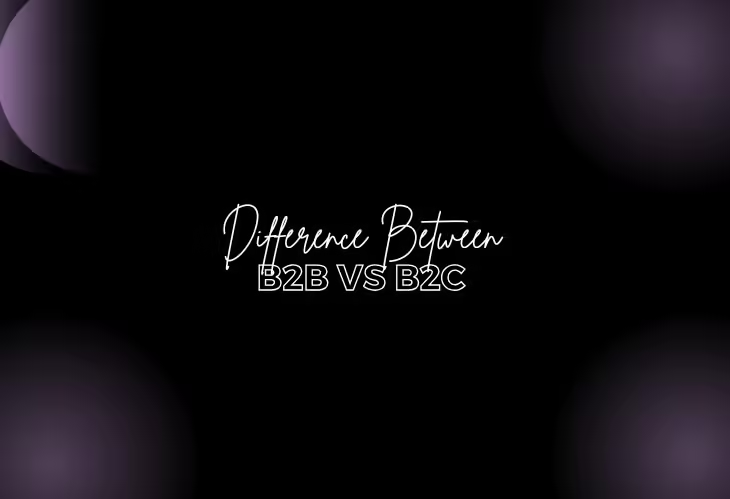Today’s consumers are increasingly conscious of the ethical practices of the brands they support. Ethical marketing has evolved from a buzzword to a business imperative that shapes consumer perceptions and influences purchasing decisions.
In this article, we discuss the importance of ethical marketing in 2025 and explore strategies to build trust and loyalty in the age of transparency.
The Evolution of Ethical Marketing
Marketing is constantly changing. New technologies, platforms, and ethical considerations are becoming increasingly important, shaping consumer perceptions and influencing purchasing decisions.
Ethical marketing has undergone a major transformation as consumers demand greater brand transparency and accountability.
From Greenwashing to True Commitment
Some brands are known for greenwashing, falsely claiming to be environmentally friendly to attract consumers. However, today’s consumers have become more demanding and seek a true commitment to ethical practices.
What does greenwashing mean? Simply put, greenwashing (sometimes spelt “green scene”) refers to companies making misleading environmental claims to trick customers into believing their products or services are environmentally friendly. Even if a company claims that its products are environmentally friendly or that its efforts are sustainable, this is untrue.
The Rise of Conscious Consumerism
Access to vast information allows consumers to make informed decisions based on their values. Ethical considerations such as sustainability, social responsibility, and fair labour practices are paramount in purchasing decisions. Brands that prioritize ethical marketing attract customers and foster long-term loyalty and advocacy.
In 2020, 60% of UK consumers expressed interest in being able to check the ethicality of products and services before purchasing (DMA, 2022)
Sustainability in Marketing: The Ethical Imperative
Sustainability is no longer just a buzzword but is becoming a basic consumer expectation. In 2025, ethical marketing will go beyond transparent messaging to encompass a brand’s entire ecosystem of business operations. This will include assessments of everything from product sourcing to packaging and even digital strategy to minimize carbon footprint.
Brands need to consider the environmental impact of their marketing decisions. For example, they should use energy-efficient servers to host their websites, minimize excessive retargeting in digital ads, and choose eco-friendly print materials for physical marketing. Ethical marketers must highlight these efforts sincerely in their campaigns. Simply slapping a “green” label on a product without actually taking action – so-called “greenwashing” – is counterproductive.
By showcasing true sustainability efforts, marketers meet growing consumer demand for environmentally conscious brands and set an inspiring example within their industry. As consumers become more informed and demanding, transparency about a brand’s sustainability efforts will be key to building trust and loyalty, giving marketers even more leverage.
Fighting misinformation: An Ethical Priority for 2025
In an age of information overload, fighting misinformation will be one of the biggest ethical challenges marketers face. Given rapid technological advances such as AI-generated content and deepfakes, the spread of misleading information is a pressing concern. In 2025, ethical marketing will require a more proactive stance against misinformation, especially in the health, finance, and education sectors, where misleading content can have serious consequences.
Marketers should strive to fact-check, ensuring all claims, statistics, and campaign recommendations are accurate and substantiated. This includes careful use of AI-generated content to avoid unintentional errors and bias. Additionally, brands must educate their audiences by debunking myths and dispelling misconceptions related to the industry.
Transparency in partnerships and sponsorships, especially with influencers and third-party content creators, is crucial to maintaining authenticity. With the prevalence of social media as a primary source of information, marketers have a responsibility to be even more vigilant against spreading false or misleading content. Ethical marketing in 2025 will be focused on honesty and truthfulness, not just to comply with regulations but to maintain public trust and make audiences feel comfortable and safe.

Transparency as a Foundation
In an era characterized by unprecedented access to information, transparency has emerged as a foundational principle of ethical marketing.
Today’s consumers expect brands to be open and honest about their activities, from sourcing and production to pricing and advertising.
Open Communication and Authenticity
Transparency is the cornerstone of ethical marketing, fostering open communication and authenticity between brands and consumers. Brands must be transparent about their sourcing, production processes, and challenges. Authentic storytelling makes brands more human and strengthens their connection with consumers.
Privacy and Security
Protecting consumer data is essential to maintaining trust.
Brands must prioritize data privacy and security and comply with regulations such as GDPR and CCPA. Transparent data practices give consumers peace of mind and show them that their data protection rights are respected.
Building Trust Through Social Responsibility
In today’s socially conscious environment, consumers are increasingly attracted to brands that are committed to making a positive impact on society.
By incorporating social responsibility at the heart of their marketing strategy, brands can build trust and loyalty by leveraging:
Purpose-Driven Marketing Initiatives
Brands can build trust by engaging in social activities and supporting initiatives that make a positive impact. Purpose-driven marketing resonates with socially conscious consumers, fostering an emotional connection and brand loyalty. Authenticity is key, and brands must ensure their actions reflect a serious commitment to social responsibility.
In 2022, 17% of consumers switched from a previously preferred brand or became less loyal to it due to the brand’s lack of purpose or social goals (Marigold, 2023)
Corporate Social Responsibility (CSR) Programs
Implementing a CSR program demonstrates a brand’s commitment to making a difference beyond profit. From environmental protection to contributing to society, CSR efforts contribute to improving the brand image. Transparent reporting on CSR efforts creates credibility and trust among stakeholders.
Ethical Considerations in Advertising and Promotion
Advertising is often intense and highly competitive. Therefore, ethical considerations play a key role in consumer perception and trust.
This section discusses the importance of maintaining ethical standards in advertising practices, from truthful messaging to inclusive representation.
Here, we explore how brands can navigate the complexities of advertising while maintaining honesty and authenticity, building stronger connections with audiences, and establishing a reputation for ethical behaviour.
Truthful and Non-Deceptive Advertising
Ethical advertising prioritizes truth and avoids deceptive tactics designed to manipulate consumer perceptions. Brands should provide accurate information about their products and avoid misleading claims. Clear disclosure of sponsored content and endorsements ensures transparency in advertising practices.
Diversity and Inclusion in Marketing Campaigns
Incorporating diversity and inclusion in marketing campaigns reflects the diverse perspectives of consumers. Brands should strive for representation and authenticity in their messaging and celebrate diversity in all its forms. Inclusive marketing promotes a sense of belonging and appeals to a broad target group.
Ethical Marketing in 2025 Completed
From a marketer’s perspective in an omnichannel world, ethical marketing has emerged as a guiding principle for brands looking to succeed in 2024 and beyond.
Transparency, social responsibility, and authenticity are not just trends but fundamental pillars of a successful marketing strategy. By prioritizing ethical practices, brands can build trust, foster loyalty, and create meaningful connections with consumers in the age of transparency.
Implementing Ethical Marketing in 2025
As businesses begin to plan their marketing for 2025, integrating ethical principles into their strategy will be essential and a competitive advantage. Here are actionable steps to embed ethical considerations into your marketing strategy and add significant value to your brand and audience.
From defining core values to promoting transparency and embracing social responsibility, we provide practical insights and growth marketing strategies to help businesses positively contribute to society while improving their marketing efforts.
Implementing ethical marketing practices helps companies build stronger relationships with consumers and drives sustainable growth and differentiation in a rapidly changing marketplace.
Define Your Values
First, identify the core values your brand stands for. To build a genuine connection with consumers, align your marketing activities with these values, such as environmental sustainability, social justice, and fair labour practices.
Embed Transparency
Be transparent about your business practices, from sourcing, production, pricing, and marketing. Provide behind-the-scenes insight and communicate openly with your audience about challenges or setbacks encountered. Transparency creates trust and confidence among consumers.
Join a purpose-driven initiative
Identify a social or environmental cause that aligns with your brand and take concrete steps to support it. Whether launching a sustainability campaign, donating to charity, or advocating for social justice, a purpose-driven initiative demonstrates your commitment to making a positive impact beyond profits.
Empower Consumers to make choices
Provide consumers with the information they need to make an informed choice. Label your products with relevant certifications (organic, fair trade, etc.) and provide detailed information about their origin, production methods, and ethics. Allowing consumers to choose builds trust and loyalty.
Promote Diversity and Inclusion
Embed diversity and inclusion in your marketing campaigns and brand messaging. Represent diverse voices and perspectives in your advertising and ensure your marketing materials are inclusive and accessible to all audiences. Celebrating diversity fosters a sense of belonging and resonates with diverse consumers.
Monitor and Adjust
Continuously monitor consumer sentiment and feedback on your ethical marketing efforts. Listen to your audience and be open to constructive criticism. Use feedback to refine your strategy and adapt to changing consumer expectations and preferences.
Incorporating these principles into your 2025 marketing strategy will help you differentiate your brand, build stronger consumer relationships, and ultimately achieve long-term success in an increasingly competitive and socially conscious marketplace.
"Ethical marketing is the practice of marketing and/or advertising products or services in a manner that is honest, transparent, and fair to all parties involved, including the customers, the company, and the wider society. It consists in adhering to moral standards and avoiding manipulative tactics."
Hire a team of expert marketers to handle
Just because a marketing strategy worked for one project doesn’t mean it will always work. At Mozo, we believe that every business is unique, and your marketing strategy needs to be just as adaptable. People’s behaviors, preferences, and trends evolve constantly, and to stay ahead, your strategy must be flexible.
Ready to grow your revenue with Mozo? Get a Free Consultation to Boost Your Business.





